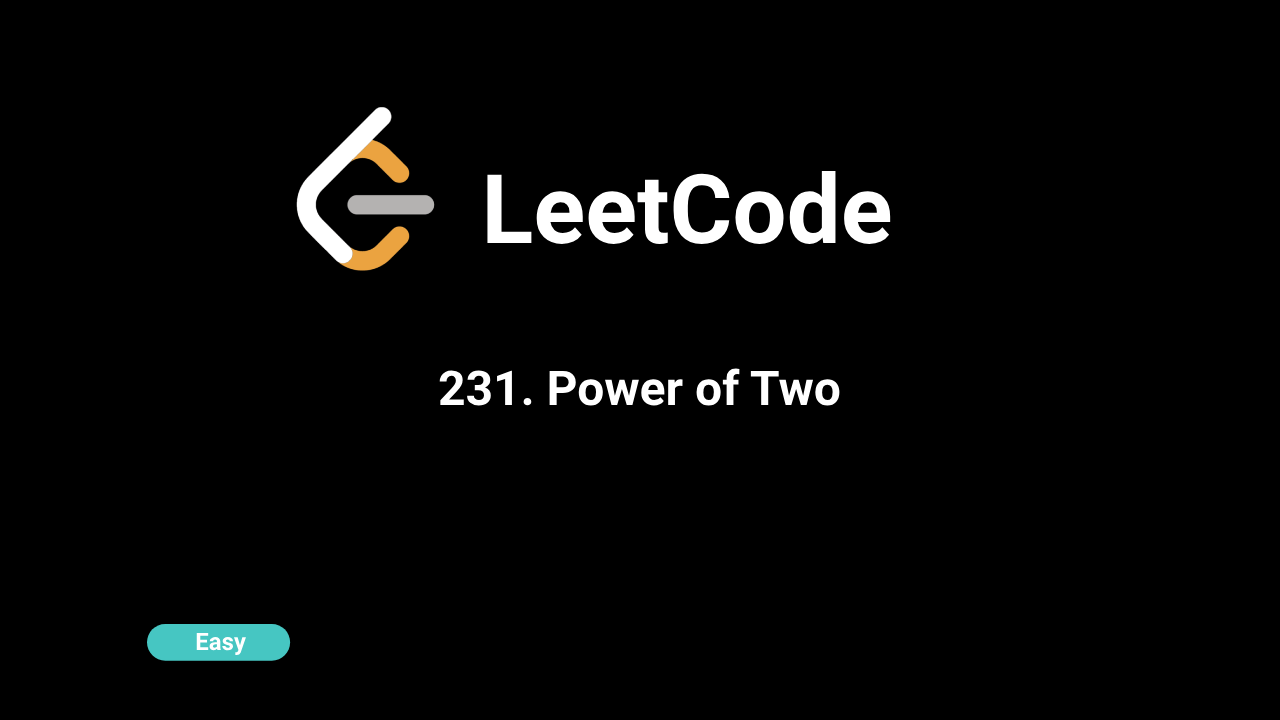🎨Now live: Try our Free AI Image Generation Feature

Description
The problem requires checking whether a given integer n is a power of two. A number is a power of two if it can be expressed as 2^k where k is a non-negative integer. For example, 1 (2^0), 2 (2^1), 4 (2^2), 8 (2^3), etc., are all powers of two.
Intuition
A power of two has only one bit set in its binary representation (e.g., 1, 2, 4, 8 are 0001, 0010, 0100, 1000 in binary, respectively). Therefore, one intuitive way to check if a number is a power of two is to iterate through the powers of two and compare each with n.
Approach
- Iterative Comparison:
- Iterate through the first 31 powers of two, since
2^30is the largest power of two within the range of a 32-bit signed integer. - For each power of two, compare it withn. - If any power of two matchesn, returntrue. - If none match, returnfalse. - Edge Cases:
- Consider special cases like
n = 0(which is not a power of two) and negative numbers, which are also not powers of two.
Complexity
Time Complexity:
O(1). The loop runs a fixed number of iterations (31 iterations for a 32-bit integer), so the time complexity is constant.
Space Complexity:
O(1). The algorithm uses a fixed amount of extra space, regardless of the input size.
Code
C++
class Solution {
public:
bool isPowerOfTwo(int n) {
for (int i = 0; i < 31; i++) {
if (pow(2, i) == n) {
return true;
}
}
return false;
}
};Python
class Solution:
def isPowerOfTwo(self, n: int) -> bool:
for i in range(31):
if 2 ** i == n:
return True
return False
Java
class Solution {
public boolean isPowerOfTwo(int n) {
for (int i = 0; i < 31; i++) {
if (Math.pow(2, i) == n) {
return true;
}
}
return false;
}
// Usage Example
public static void main(String[] args) {
Solution sol = new Solution();
boolean result = sol.isPowerOfTwo(16); // Example input
System.out.println(result); // Output: true
}
}
JavaScript
var isPowerOfTwo = function (n) {
for (i = 0; i < 31; i++) {
if (Math.pow(2, i) == n) {
return true
}
}
return false
};